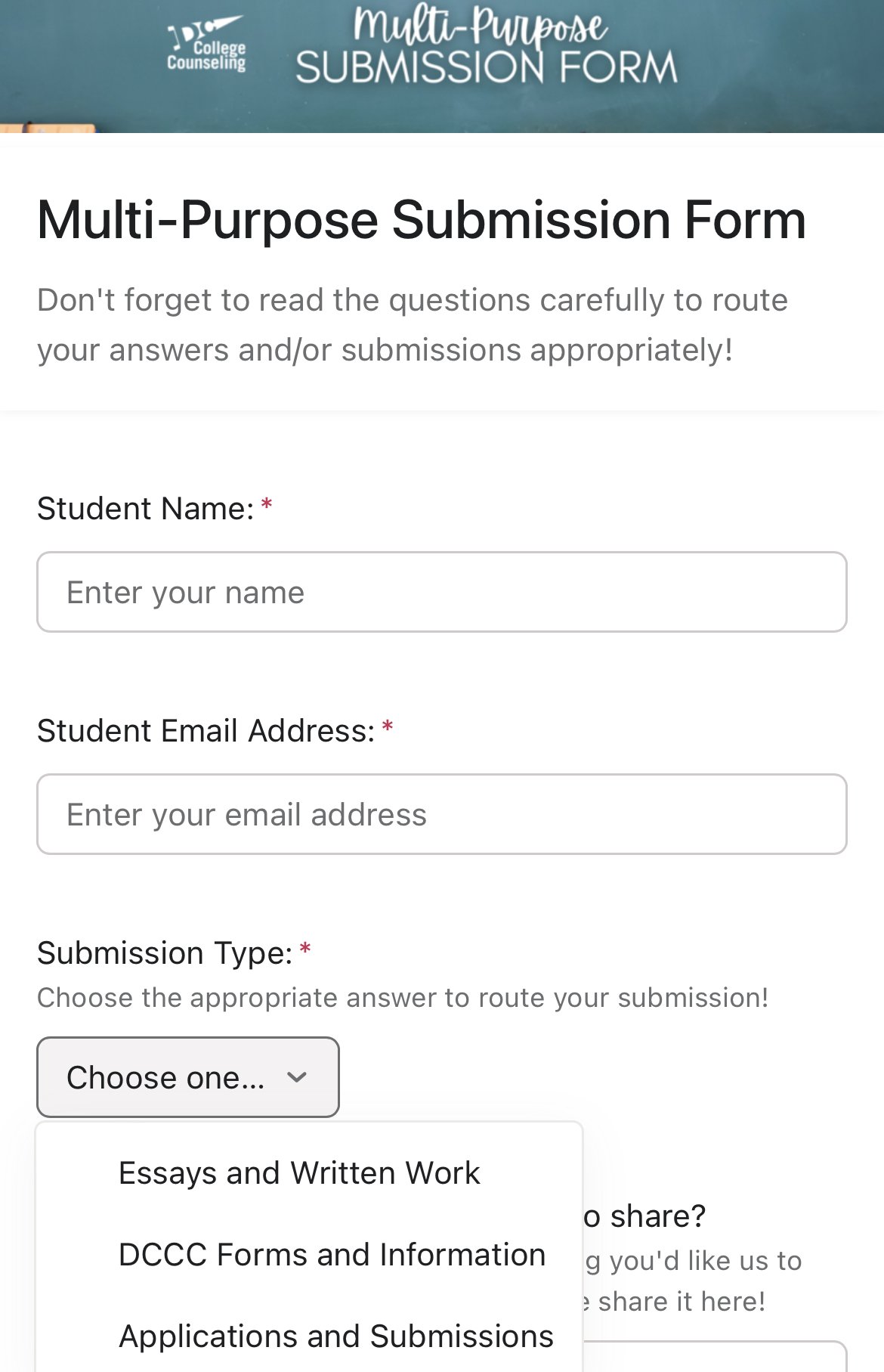Last week, the Supreme Court released decisions in the Students for Fair Admissions v. Harvard and Students for Fair Admissions v. UNC cases. As expected, the ruling effectively eliminates the use of formal affirmative action practices in college admissions: an incredible development for some and a devastating setback for others.
Our goal at DC College Counseling has always been to help each one of our students navigate today’s college admissions landscape in the most advantageous and strategic way possible, given their varying circumstances.
Whether our next steps together involve maximizing new opportunities or overcoming new limitations, please know that we remain committed to finding creative and ethical solutions to increase the likelihood of a positive outcome for each individual student.
With that said, we’ve been fielding a lot of questions - and we want to share our answers!
IS THIS AS BIG OF AN ADMISSIONS gAME CHANGER AS IT SEEMS?
It’s very important to read the wording of the opinion carefully to differentiate between what will change and what will stay the same. Yes, an admissions committee is no longer able to give an applicant an advantage simply due to the color of their skin alone, in a vacuum.
But admissions committees are still able to consider the impact of students’ races on their individual experiences. The mainstream media isn’t picking up on this as much as I wish it would. College admissions professionals know that this makes a big difference, because the entire college admissions process is holistic by nature anyway at highly selective schools.
Chief Justice John Roberts wrote: “Nothing in this opinion should be construed as prohibiting universities from considering an applicant’s discussion of how race affected his or her life, be it through discrimination, inspiration, or otherwise.”
That doesn’t mean this decision doesn’t matter, though. Roberts also added, “Universities may not simply establish through application essays or other means the regime we hold unlawful today.”
Ultimately, I think that underrepresented students may not see as much of an impact as we had previously imagined if (a) they have faced adversity as a result of their race, and (b) they can successfully communicate the impact of that adversity on their individual circumstances through their essays and other application materials.
We will know much more next summer, after we are able to analyze the results of a complete admissions cycle.
When does this go into effect?
The ruling will go into effect immediately, so rising seniors will see the impact of the case.
Which students will this impact most?
Now that schools have lost the ability to consider race as part of the admissions process in a blanket sense, we expect admissions committees to give more consideration to other factors that may increase diversity- such as socioeconomic status.
That could result in an easier admissions process for white or Asian students from economically disadvantaged backgrounds, and a much more difficult process for underrepresented students from privileged backgrounds.
Asian students will likely see the biggest positive impact - in fact, the negative impact on Asian students from affirmative action policies was the central argument in this case. The major benefit to this group will actually be a lack of discrimination.
There’s also another group that I think could come out ahead - students who are diverse but didn’t quite “fit the box” for a leg up. For example, students of Middle Eastern descent. There is no question that they face discrimination in today’s society - so why weren’t they getting any kind of admissions advantage?
The justices cited this group as an example three separate times throughout the course of the opinion, noting that existing affirmative action policies “fail[ed] to articulate a meaningful connection between the means they employ and the goals they pursue” in this regard. It also specified that the current approach was “underinclusive” for Middle Eastern students in particular.
If colleges shift their approach to considering the impact of race or minority status on each individual student’s life, these students may not fall through the cracks as much.
WHICH colleges will this impact most?
There are many colleges and universities that do not use race-conscious admissions at all - in fact, it is banned in nine states, including California (so the UC system is not impacted).
I believe that the changes will be most obvious at public schools which currently do use race-conscious admissions and are less holistic in their admissions approach. To be clear, not all public schools operate this way. Many do not, including the more academically competitive institutions here in Virginia.
Private schools, on the other hand, often place greater emphasis on subjective factors like essays and recommendations. These institutions may not have to change their policies as drastically, because they can simply continue evaluating candidates on an individual basis that takes many different factors into consideration.
HBCUs, like Morehouse, Spelman, and Howard, will probably see a rise in applications as more Black students choose alternative options.
What will change on the Common ApplicationⓇ?
Students will likely still have the opportunity to indicate their race on the Common ApplicationⓇ, but beginning August 1, colleges will have the ability to block the race answer on their side, so that admissions officers do not see this answer while reading the application. We will have to stay tuned to see whether Common AppⓇ decides to do away with the box entirely in the wake of this decision.
What should I do differently as a result?
While “checkboxes” or other binary options indicating race cannot be used in the admissions process, essay content is still fair game. ALL students, whether or not they are from an underrepresented group, should pay close attention to their college essays and be strategic about the information they share (this was always true, but is especially true now!). There was actually an article in the LA Times about this very issue today.
Black, Latinx, or other underrepresented minority students will need to make sure that if they do want to discuss race on their applications, they do so in a way that connects directly to their personal characteristics. For example, a Black student could focus an essay on her determination, showing how she overcame persistent racial slights at her mostly-white high school.
For DC College Counseling clients, we already take this approach! All of our students build their essays by choosing a personal characteristic first, before focusing on the story.
PRO TIP: Underrepresented students who do not want to include anything about race in their main Common ApplicationⓇ essay should consider preparing a separate written statement for the “Additional Information” section of the application instead.
What will the future impact of this case BE?
This decision is expected to encourage colleges and universities to remain test-optional in the coming years. As we’ve seen already with the UCs, which are test-blind, eliminating test scores from the admissions process helps create diversity on campus in the absence of race-conscious admissions. This may apply to graduate schools as well, with less of a reliance on GRE, LSAT, or GMAT scores.
This is not necessarily a good thing for students, by the way. As many of our rising seniors are learning, test-optional policies are not test-blind policies. If you don’t know the difference, I still like my pool analogy from 2020! Plus, test-optional policies have caused test score averages to skyrocket now that the bottom group of test-takers is no longer factored in.
We may also see more schools making the decision to stop relying on legacy admissions in an effort to diversify their incoming classes. Because larger proportions of white applicants are admitted through the legacy process, colleges hoping to increase numbers of Black, Latinx, and Native American students on campus may look to eliminate the legacy preference.
Finally, we are likely to see an impact on minority scholarship programs and outreach initiatives at colleges and universities.
As we continue to learn more about how individual institutions plan to modify their policies or approaches in response to the ruling, we will do whatever we can to leverage this information to help our students.
Do you have any questions that I didn’t answer? Let us know in the comments!
























































